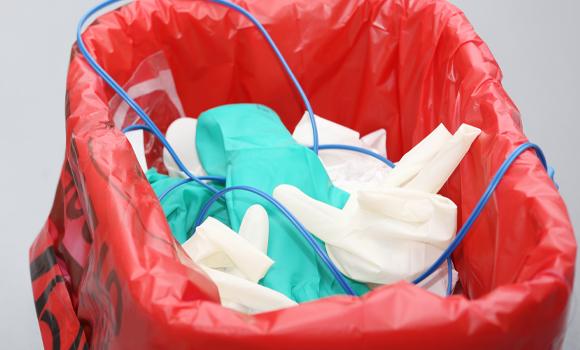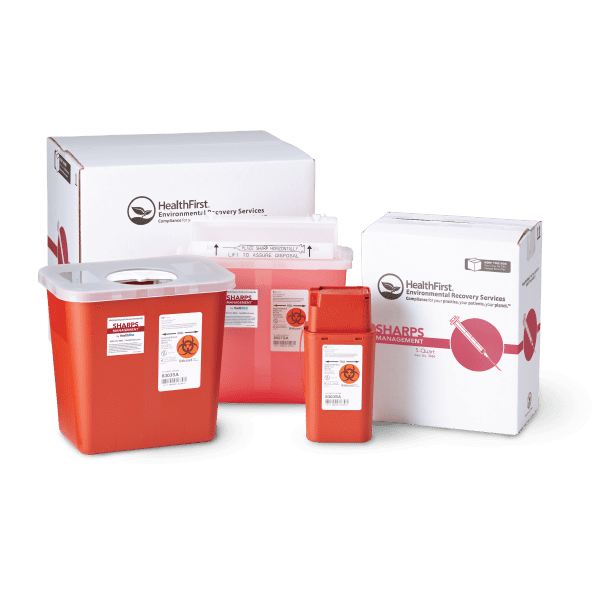Ecological Duty: The Eco-Friendly Strategy to Medical Waste Disposal
Ecological Duty: The Eco-Friendly Strategy to Medical Waste Disposal
Blog Article
The Importance of Correct Garbage Disposal Practices
The administration of waste is a crucial aspect of ecological stewardship that typically goes unnoticed in our lives. Correct waste disposal techniques are not simply an issue of comfort yet are important for guarding our communities and public wellness. From the effects of improper waste disposal on our environment to the long-term implications for future generations, the significance of embracing sustainable waste management methods can not be overemphasized. By checking out the ecological effect of reckless garbage disposal, the advantages of recycling efforts, and the value of neighborhood engagement in waste reduction initiatives, a much deeper understanding of why correct garbage disposal techniques are critical arises.
Environmental Effect of Improper Disposal
Inappropriate disposal of waste positions a significant hazard to the environment because of its detrimental effects on ecological communities and human health and wellness. When waste is not correctly taken care of, it can result in pollution of the water, air, and dirt, triggering damage to various plant and pet species. click here. Chemicals and toxic substances from improperly disposed waste can permeate into the ground, polluting groundwater resources and influencing the health of both wildlife and humans
Furthermore, the buildup of waste in landfills produces greenhouse gases like methane, contributing to climate modification and international warming. Inappropriate disposal practices also lead to littering, which not just breaks down the visual worth of the setting but can also hurt wildlife via ingestion or entanglement.
To minimize these environmental influences, it is important for areas and people to adopt proper waste disposal techniques such as recycling, composting, and responsible harmful waste disposal. By taking these actions, we can assist shield ecosystems, preserve natural resources, and protect human health for future and present generations.
Advantages of Recycling Programs
Consistently taking part in recycling programs offers various advantages for both the atmosphere and culture as a whole. This conservation of resources not just aids in preserving environmental balance but also adds to lasting advancement.
Additionally, reusing plays a crucial duty in lowering energy usage and greenhouse gas discharges. The manufacturing of goods from recycled products generally needs much less energy compared to making from virgin resources - medical waste removal service. Therefore, the carbon impact connected with the manufacturing process is significantly lowered, aiding in the battle against environment modification
Additionally, recycling programs produce work possibilities in the recycling industry, promoting financial growth and social welfare. By encouraging the recycling and reuse of materials, these programs sustain a round economic climate that lessens waste generation and makes the most of source efficiency, inevitably leading to a cleaner, greener future for generations to find.
Hazardous Waste Administration Guidelines
Executing reliable contaminated materials administration standards is crucial for lessening environmental and wellness risks linked with the improper disposal of hazardous products - click here. Correct handling, treatment, and disposal of unsafe waste are important to avoid contamination of dirt, water sources, and air
One secret standard is appropriate labeling of contaminated materials containers to ensure secure handling and transport. Furthermore, facilities should stick to rigorous storage space demands to avoid leakages, spills, or mishaps that might endanger human health and wellness and the environment. Routine training programs for employees on contaminated materials management methods are also vital to guarantee conformity with laws and promote a culture of safety and security.
In addition, harmful waste needs to be segregated based on its residential properties to avoid chemical responses that can bring about dangerous situations. Carrying out an extensive waste radar can help check the movement of unsafe materials from generation to disposal, making sure openness and accountability. By following these guidelines carefully, markets and companies can add to a safer and cleaner atmosphere for existing and future generations.
Neighborhood Participation in Waste Reduction
To properly resolve the ecological and health risks connected with contaminated materials monitoring, engaging the area in waste reduction campaigns is vital. Community involvement plays a critical role in advertising lasting waste management techniques and cultivating a society of ecological obligation. By enlightening residents regarding correct waste segregation, recycling, and composting methods, areas can considerably lower the amount of waste sent out to landfills, thus minimizing environmental contamination and preserving natural resources.
Neighborhood engagement in waste reduction programs likewise aids in increasing awareness concerning the significance of waste reduction and motivates individuals to take on eco-friendly routines in their lives - medical waste removal service. Collective initiatives between local authorities, waste administration business, and neighborhood participants can bring about the application of efficient waste reduction strategies customized to the particular needs of each area or town
Moreover, community engagement promotes a sense of ownership and accountability among locals, encouraging them to take positive actions towards minimizing waste generation and advertising a cleaner, healthier atmosphere for future and existing generations. By interacting in the direction of common waste decrease goals, communities can make a substantial effect on minimizing the damaging results of incorrect waste disposal methods.

Future of Sustainable Waste Practices
The evolution of lasting waste techniques is critical for progressing environmental stewardship and source conservation in the coming years. As the worldwide population remains to grow, so does the quantity of waste produced (medical waste removal service). Traditional garbage disposal techniques, such as landfilling and incineration, are no longer sustainable in the lengthy term due to their considerable environmental influences. Progressing, the future of lasting waste methods depends on accepting a circular economic situation strategy, where sources are reused, reused, or repurposed to decrease waste generation.
Technical innovations play an essential role fit the future of sustainable waste techniques. Advanced waste sorting and recycling modern technologies can aid boost the efficiency of waste management processes, enabling for the recovery of valuable sources from waste streams. In addition, the fostering of eco-friendly materials and composting methods can help in reducing the amount of organic waste winding up in land fills, consequently reducing greenhouse gas exhausts.
In addition, promoting customer awareness and education he said on correct waste segregation and disposal practices is vital for driving behavioral change in the direction of sustainability. By fostering a culture of waste decrease, recycling, and reuse, communities can jointly add to a cleaner and healthier setting for future generations.

Verdict
Finally, correct waste disposal practices are crucial for lessening ecological influence and promoting sustainability. By carrying out reusing programs, managing contaminated materials effectively, and motivating neighborhood participation in waste reduction initiatives, we can function in the direction of a cleaner and healthier setting. It is very important for federal governments, people, and organizations to prioritize lasting waste methods for the future wellness of our world.

From the repercussions of incorrect waste disposal on our setting to the long-term effects for future generations, the importance of taking on lasting waste monitoring methods can not be overemphasized. By checking out the ecological effect of careless waste disposal, the advantages of recycling initiatives, and the value of neighborhood engagement in waste decrease initiatives, a much deeper understanding of why appropriate waste disposal techniques are vital arises.
By educating homeowners about proper waste segregation, recycling, and composting techniques, neighborhoods can substantially minimize the amount of waste sent to land fills, therefore lessening ecological air pollution and saving natural resources. (click here)
Moving onward, the future of sustainable waste practices lies in embracing a circular economic situation strategy, where resources are recycled, reused, or repurposed to reduce waste generation.
Advanced waste sorting and recycling innovations can aid enhance the effectiveness of waste administration processes, permitting for the healing of valuable sources from waste streams.
Report this page